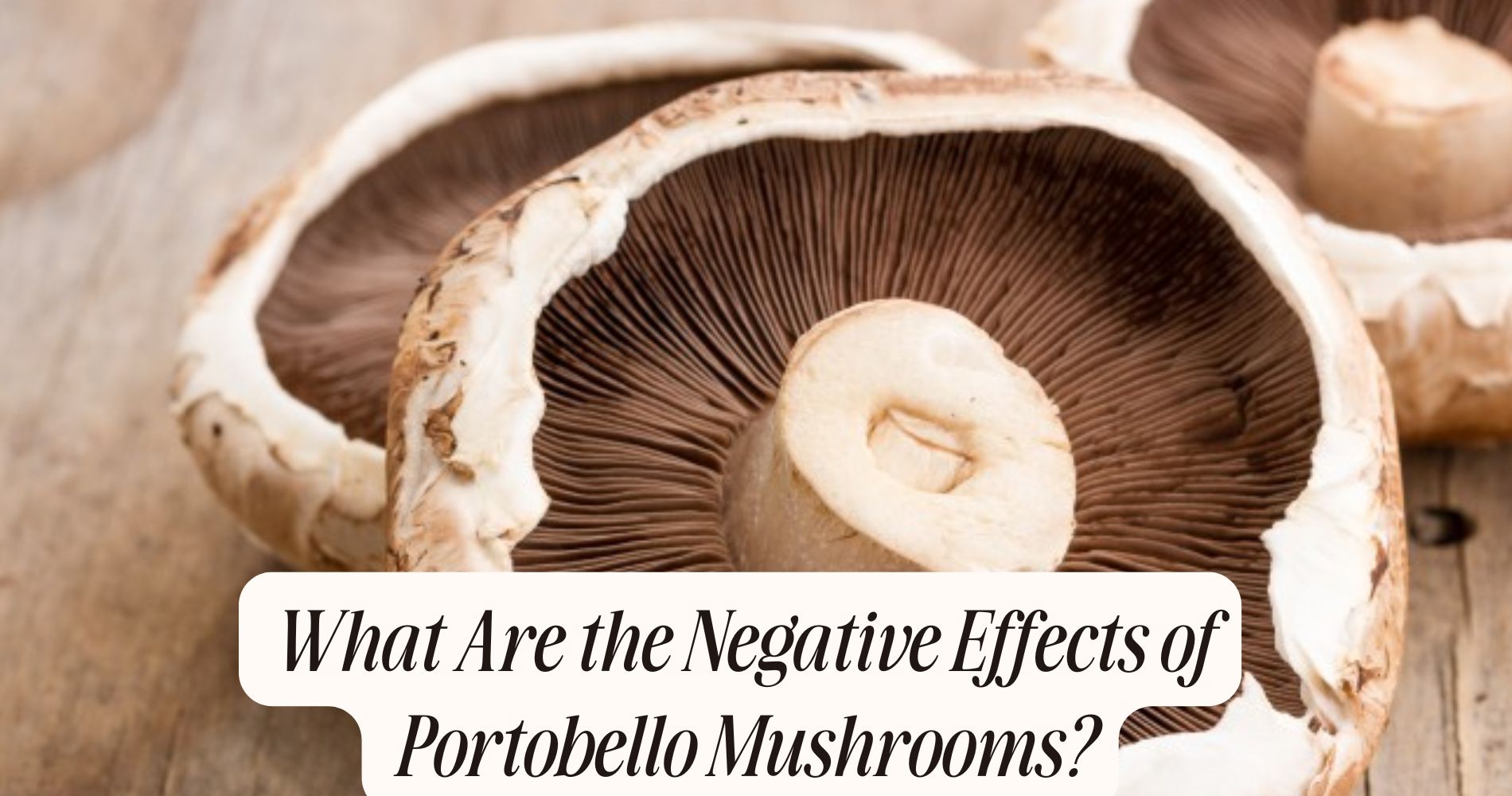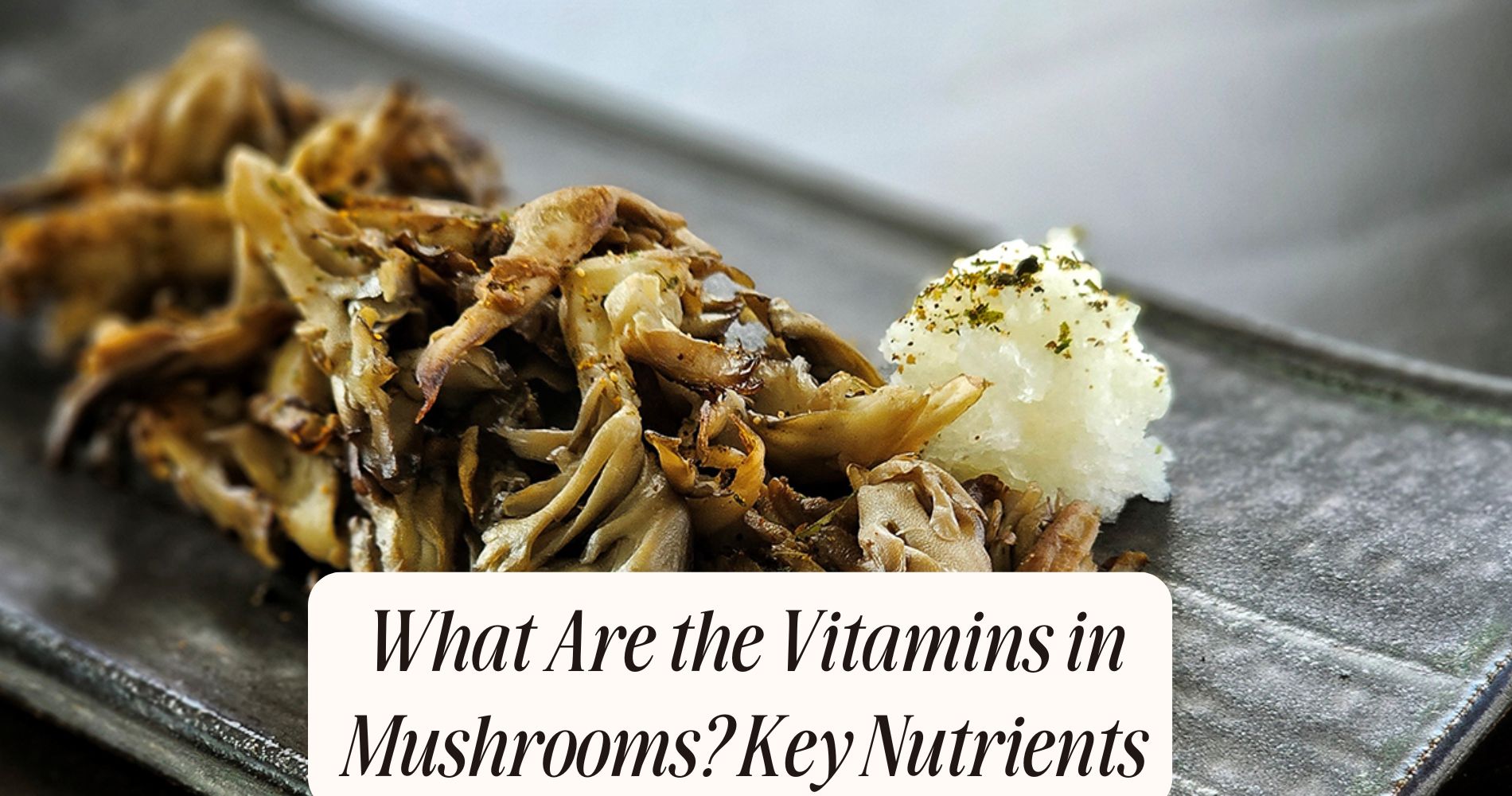
What Are the Negative Effects of Portobello Mushrooms?
What are the negative effects of portobello mushrooms? When you eat Portobello mushrooms (Agaricus bisporus), you might face digestive discomfort due to chitin and beta-glucans, especially if you have a sensitive gut. You could also experience allergic reactions, immune responses, or exposure to hydrazine derivatives like agaritine—compounds linked to health risks. Portobellos can bioaccumulate heavy metals from contaminated substrates and harbor foodborne pathogens if mishandled. Consuming them raw increases toxin exposure. There’s more to take into account to ensure safe consumption practices for your health.
Digestive Issues and Gastrointestinal Discomfort
Although Agaricus bisporus, commonly known as portobello mushrooms, are widely consumed for their nutritional benefits, they can cause digestive disturbances in some individuals. If you’re sensitive to certain polysaccharides, such as chitin and beta-glucans found in the cell walls of A. bisporus, you may experience gastrointestinal discomfort after ingestion.
Despite their robust flavor profile and notable culinary versatility, portobello mushrooms are relatively high in fiber and resistant starches. These components can ferment in the colon and lead to bloating, flatulence, or mild cramping.
Scientific literature suggests that incomplete enzymatic degradation of these complex carbohydrates is a primary mechanism for these symptoms. Cooking may improve digestibility, but excessive consumption can still overwhelm your gastrointestinal system, especially if you have pre-existing digestive sensitivities or irritable bowel syndrome.

Allergic Reactions and Sensitivities
While portobello mushrooms (Agaricus bisporus) are generally regarded as safe for most people, they can provoke allergic reactions in susceptible individuals. If you have a history of fungal allergies, you might experience sensitivity symptoms such as urticaria, angioedema, rhinitis, or bronchospasm after ingestion or handling.
Cross reactivity concerns are particularly relevant if you’re allergic to other fungi, such as molds (Ascomycota), or closely related mushroom species within the Agaricaceae family.
Immunoglobulin E (IgE)-mediated hypersensitivity reactions may manifest rapidly, necessitating medical attention.
Clinical case reports document that occupational exposure to Agaricus bisporus spores can result in respiratory symptoms.
If you have pre-existing atopic conditions, you should remain vigilant about potential allergenic responses when consuming or preparing portobello mushrooms, especially given their widespread culinary use.
Risk of Toxic Compound Exposure
Beyond allergic responses, portobello mushrooms pose another concern due to their content of naturally occurring toxic compounds. Agaricus bisporus, the species you recognize as portobello, contains hydrazine derivatives such as agaritine. Scientific literature has linked agaritine to potential carcinogenicity in rodent studies, although its impact on humans remains under investigation.

If you consume these mushrooms frequently or in large quantities, you could face toxic compound buildup, especially since cooking only partially degrades agaritine. Additionally, improper storage and handling elevate mushroom contamination risks, increasing your exposure to microbial toxins.
While moderate consumption is generally considered safe, it's important to recognize that chronic exposure or poor food safety practices can heighten your risk. Always source mushrooms from reputable suppliers and practice proper preparation methods to minimize negative effects.
Heavy Metal Accumulation Concerns
Since Agaricus bisporus is known for its bioaccumulative properties, portobello mushrooms can absorb and concentrate heavy metals like cadmium, lead, and mercury from their growing substrate. If you consume portobello mushrooms grown in substrates affected by soil contamination or environmental pollutants, you're at risk of ingesting these toxic elements.
Scientific studies have demonstrated that A. bisporus exhibits a marked tendency to accumulate trace metals, especially when cultivated in contaminated environments.
Chronic intake of heavy metals poses health hazards, including nephrotoxicity, neurotoxicity, and disruption of enzymatic processes.
Consequently, sourcing mushrooms grown in controlled, pollutant-free environments is vital.
Regular dietary exposure to contaminated portobello mushrooms can contribute to cumulative toxic metal burden in your body, so it's important to consider the origin and quality of your mushrooms.
Potential for Foodborne Illness
Although portobello mushrooms (Agaricus bisporus) are widely consumed for their nutritional benefits, they can act as vehicles for foodborne pathogens if handled or stored improperly. You should be aware that improper storage conditions, such as elevated humidity and temperature, promote proliferation of microorganisms like Listeria monocytogenes and Escherichia coli.
Cross contamination risks increase when raw portobellos come into contact with contaminated surfaces or utensils, transmitting bacteria and other pathogens. Evidence indicates that washing mushrooms inadequately or storing them in airtight containers may retain excess moisture, fostering bacterial growth.

Taxonomically, A. bisporus is susceptible to colonization by spoilage organisms if post-harvest handling is subpar. For ideal safety, you must refrigerate portobellos promptly, store them in breathable packaging, and prevent exposure to potential contamination sources throughout preparation and storage.
Interference With Certain Medications
If you regularly consume portobello mushrooms (Agaricus bisporus), you should recognize their potential to interact with certain pharmaceuticals due to their bioactive compounds. These fungi contain substances such as ergothioneine and various phenolic antioxidants, which may influence drug metabolism pathways, particularly those involving cytochrome P450 isoenzymes.
This can result in medication interactions that alter the efficacy or toxicity of prescribed drugs. For instance, portobello mushrooms possess natural salicylates, which can enhance blood thinning effects when combined with anticoagulants like warfarin or antiplatelet agents.
You might inadvertently increase your risk of bleeding complications if you don’t discuss your dietary habits with your healthcare provider. Always inform your physician about regular consumption of Agaricus bisporus to minimize adverse drug-diet interactions and ensure safe pharmacological management.
High Purine Content and Gout Risk
While portobello mushrooms (Agaricus bisporus) are often considered a nutritious food choice, their relatively high purine content poses a concern for individuals susceptible to gout.
When you consume foods rich in purines, your body metabolizes them into uric acid. Excessive intake of portobello mushrooms may contribute to purine overload, increasing serum urate concentrations.
Elevated uric acid levels can precipitate monosodium urate crystals within joint spaces, triggering acute gout flare ups characterized by inflammation and intense pain.
Clinical guidelines recommend limiting dietary purines for hyperuricemic patients or those with a history of gout.
Although Agaricus bisporus offers micronutrients and fiber, you should weigh the potential risk of exacerbating gout symptoms if you’re predisposed.
Consult with a healthcare professional before incorporating high-purine fungi into your diet.
Impact on Individuals With Autoimmune Disorders
Beyond concerns related to purine metabolism and gout, portobello mushrooms (Agaricus bisporus) may also interact with immune function, posing potential complications for individuals with autoimmune disorders. If you have conditions like rheumatoid arthritis, lupus, or multiple sclerosis, you should know that Agaricus bisporus contains bioactive compounds such as beta-glucans, which can modulate immune responses.

Some studies suggest these constituents might contribute to immune suppression or, paradoxically, symptom exacerbation depending on your underlying pathology and current treatments. Immunomodulation from dietary fungi isn’t always predictable, particularly if you’re taking immunosuppressive medications.
You may experience altered disease activity, either by dampening necessary immune responses or provoking inflammation. Always consult your healthcare provider before introducing portobello mushrooms into your diet to avoid unintended immune-related consequences.
Challenges for People With Fungal Overgrowth
Although portobello mushrooms (Agaricus bisporus) are often considered a healthy dietary choice, their consumption can present specific challenges for individuals dealing with fungal overgrowth, such as candidiasis. If you have a predisposition to fungal sensitivity, ingesting additional fungal components may exacerbate your symptoms.
The cell wall polysaccharides in A. bisporus, including beta-glucans and chitin, can potentially stimulate immune responses in susceptible individuals, complicating the management of mycotic imbalances.
Additionally, portobello mushrooms may harbor mycotoxin risks—secondary metabolites produced by fungi—which could further stress your detoxification pathways.
Evidence suggests that those with chronic fungal overgrowth should closely monitor their dietary intake of fungi to minimize adverse reactions. It's crucial to consult with a healthcare professional if you suspect heightened sensitivity or exacerbation of symptoms.
Not Suitable for Raw Consumption
Because portobello mushrooms (Agaricus bisporus) contain the naturally occurring hydrazine compound agaritine, consuming them raw poses specific health risks. Scientific literature identifies agaritine as a potentially carcinogenic substance, which degrades with cooking. When you eat raw portobellos, you risk ingesting higher concentrations of this toxicant.
Moreover, raw Agaricus bisporus contains chitin and other polysaccharides that can impede nutrient absorption by binding essential micronutrients in the gastrointestinal tract. Cooking facilitates enzyme activation, which helps break down these complex carbohydrates and denatures other antinutritional factors.
A Safer, Smarter Mushroom Option: SUPER MUSHROOM GUMMIES
After learning about what are the negative effects of portobello mushrooms, you might be seeking a more convenient and worry-free way to enjoy mushroom benefits. Enter Well Gummies' SUPER MUSHROOM GUMMIES—a delicious, chewable alternative that combines 10 functional mushrooms into one easy-to-enjoy, vegan gummy. Designed to support brain function, boost energy, and enhance immune health, these wild berry-flavored gummies deliver steady, calm focus without jitters or crash. Skip the prep and potential risks—get balanced wellness in every bite with Well Gummies!
Frequently Asked Questions
Can Portobello Mushrooms Affect Hormone Levels or Thyroid Function?
You won't find strong scientific evidence that Agaricus bisporus, the portobello mushroom, causes hormonal disruption or thyroid interference in humans. Most studies show minimal impact on endocrine function, so you can safely consume them in typical dietary amounts.
Are Portobello Mushrooms Safe for Children and Pregnant Women?
You should know Agaricus bisporus (portobello mushroom) is generally considered safe for children and pregnancy. Evidence doesn't indicate significant children safety or pregnancy concerns, though rare allergic reactions and proper cooking are advised to mitigate potential hydrazine compound exposure.
Do Portobello Mushrooms Impact Mental Health or Mood?
You won't typically experience mood fluctuations or altered mental clarity from consuming Agaricus bisporus (portobello mushrooms). Current evidence shows no psychoactive compounds present, so they don't directly impact neurochemical pathways associated with mental health or cognitive function.
Can Portobello Mushrooms Cause Skin Reactions Besides Allergies?
You might experience skin irritation or contact dermatitis when handling Agaricus bisporus (portobello mushrooms), though this is rare. Scientific literature reports occasional hypersensitivity reactions, typically presenting as localized erythema, pruritus, or mild inflammation, apart from classic allergic responses.
How Do Portobello Mushrooms Interact With Probiotic Supplements?
When you consume Agaricus bisporus (portobello mushrooms) with probiotic supplements, you won't experience significant interactions. Current evidence doesn't indicate that portobellos alter fermentation effects or inhibit probiotic absorption within the gastrointestinal tract's microbial ecology.
Conclusion
In summary, while Agaricus bisporus (portobello mushrooms) offer nutritional benefits, you should be aware of potential adverse effects. Consuming these fungi can cause gastrointestinal disturbances, allergic reactions, and expose you to hydrazine derivatives if eaten raw. Additionally, their ability to bioaccumulate heavy metals and their high purine content may exacerbate conditions like gout. If you have autoimmune disorders or fungal overgrowth, exercise caution. Always cook portobellos thoroughly to reduce toxicological risks and optimize safety.




